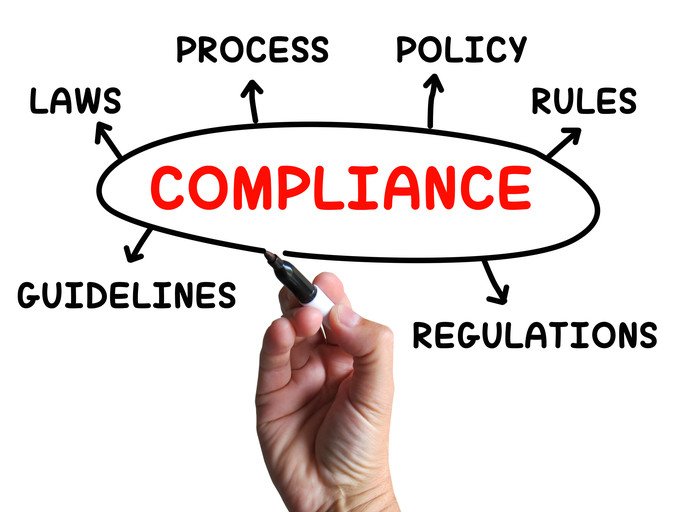Starting and running a business can be an exciting venture, but it also comes with a lot of legal responsibilities. As a business owner, you need to be aware of the laws and regulations that apply to your industry and take steps to minimize risk and avoid litigation. In this blog post, we’ll cover key legal tips that can help you protect your business and stay on the right side of the law.
Understanding the Basics of Business Law

The first step to minimizing legal risk is to have a solid understanding of the basic principles of business law. This includes understanding the types of business entities, such as sole proprietorships, partnerships, and corporations, and their respective legal requirements. You should also be aware of the legal requirements for starting and operating a business, such as obtaining licenses and permits, registering your business with the appropriate government agencies, and complying with tax laws. Hiring an experienced attorney like Franci Neely could help you with the process.
Drafting Clear and Enforceable Contracts

Contracts are the foundation of business relationships, and it’s important to draft clear and enforceable contracts that protect your interests. A well-drafted contract should clearly define the terms and conditions of the agreement, including payment terms, delivery timelines, and dispute resolution procedures. It should also include provisions that protect your intellectual property rights and limit your liability in the event of a dispute.
Protecting Intellectual Property Rights

Intellectual property rights, such as trademarks, patents, and copyrights, are valuable assets that can give your business a competitive advantage. It’s important to take steps to protect these rights, such as registering your trademarks and patents and using non-disclosure agreements to protect your confidential information. You should also be aware of the intellectual property rights of others and take care to avoid infringing on their rights.
Complying with Employment Laws and Regulations

In addition to anti-discrimination laws, wage and hour laws, and workplace safety regulations, there are other important employment laws and regulations that businesses must comply with, such as immigration laws, employee benefits regulations, and leave laws. Failure to comply with these laws can result in costly disputes, fines, and even criminal penalties. As such, it’s important for businesses to stay up to date on the latest legal developments and take proactive steps to ensure compliance with all applicable employment laws and regulations. This includes conducting regular audits and training programs to ensure that all employees are aware of their rights and responsibilities under the law.
Ensuring Data Privacy and Security
Data privacy and security are increasingly important issues for businesses, particularly in light of high-profile data breaches and privacy scandals. It’s important to have policies and procedures in place to protect your customers’ personal information, such as using secure data storage and encryption methods, implementing access controls, and providing employee training on data privacy and security. You should also be aware of applicable data privacy laws and regulations, such as the General Data Protection Regulation (GDPR) and the California Consumer Privacy Act (CCPA), and ensure that you are in compliance.
Managing Risks in Business Transactions
Business transactions, such as mergers and acquisitions, can be complex and risky. It’s important to conduct thorough due diligence and carefully review all contracts and agreements before entering into any transaction. You should also have a clear understanding of the potential risks and liabilities associated with the transaction and take steps to mitigate them.
Maintaining Accurate and Complete Records

Accurate and complete record-keeping is essential for legal compliance and risk management. You should maintain detailed records of all financial transactions, contracts, and agreements, as well as employee records and other business documents. These records should be stored securely and be easily accessible in the event of an audit or dispute.
Responding to Legal Issues Promptly and Effectively
Legal issues can arise at any time, and it’s important to respond promptly and effectively to minimize the risk of escalation. This includes seeking advice as soon as possible, cooperating fully with legal investigations and proceedings, and taking appropriate steps to address the underlying issues. It’s also important to communicate clearly and honestly with all parties involved, including employees, customers, and business partners, to maintain trust and minimize the risk of reputational damage.
Seeking Legal Advice and Representation as Needed
While it’s important to have a solid understanding of business law and take steps to minimize legal risk, there may be times when you need to seek advice or representation. This includes situations where you are facing a lawsuit, regulatory investigation, or other legal dispute. Working with a qualified attorney can help you navigate the process and protect your business interests.
Developing a Proactive Legal Strategy for Your Business

It’s important to develop a proactive legal strategy for your business. This means regularly reviewing your policies and procedures, identifying potential legal risks, and taking steps to mitigate them. It also means staying up to date on changes to laws and regulations that affect your business and taking proactive steps to comply with them.
Implementing a Crisis Management Plan for Legal Issues
In addition to developing a proactive legal strategy, it’s important for businesses to have a crisis management plan in place to address legal issues as they arise. This plan should include clear procedures for handling legal disputes, such as identifying the key stakeholders, assessing the potential impact of the dispute, and developing a communication strategy. It should also identify the key decision-makers and ensure that everyone is aware of their roles and responsibilities in the event of a legal crisis. By implementing a crisis management plan, businesses can minimize the risk of reputational damage and ensure that they are able to respond quickly and effectively to legal issues.
Conclusion
In conclusion, minimizing legal risk and avoiding litigation is an essential part of running a successful business. By following these key tips, you can protect your business and ensure that you are in compliance with applicable laws and regulations. While it may require some time and effort on your part, investing in legal compliance and risk management can ultimately save you time, money, and headaches in the long run.









